|
Cashing In By Being Consistent And Bringing The Corn
"Bring The Corn, Sam" Is there an important marketing lesson in an old, black & white movie? It's a 70-year-old film that has been called "schlocky" and "mediocre." How can this film even matter? After all, one of the movie's screenwriters called it, "A great deal of corn, more corn than in the states of Kansas and Iowa combined." Remember, this man talking about his own writing. And what is corn, anyway? Ask Oxford, and here's what you get: "Trite, banal, or mawkishly sentimental." Ick. That Sounds Not Good But if you've ever watched this film, you know: the trite, banal and mawkish sentimentality works like a charm. This film is the Humphrey Bogart/Ingrid Bergman classic, Casablanca. It's one of the most popular movies of all time. Over 70 years later, it remains one of the single most rented movies ever. This despite being (yes) corny. Even the same people who describe it using words like "schlocky" and "mediocre" also say things like "phenomenon worthy of awe" and "Homeric." (Didn't study your classics? Homer is the Greek poet who gave us epics The Iliad and The Odyssey. He's considered a genius for all time.) Damn The Corn! Full Speed Ahead! The reason Casablanca has been working for the better part of a century is simple: big themes and authenticity. Yes, the movie is full of stereotypes. But the stereotypes are positive and flattering. The movies is rife with emotional struggle. Raw human emotions are at the center of everything. And the key theme of the film is this: Sacrifice. Almost nobody in the movie is without selfishness and greed. But when push comes to shove, everyone you care about sacrifices something. As the great Italian thinker and author Umberto Eco says of Casablanca, "The myth of sacrifice runs through the whole film." Ah, myth. Myths Are The Stories We Tell About Our Better Selves And Casablanca works because it is founded on a myth of things that are good, right and true. Despite bouts of bad acting, erratic storytelling, and ongoing corn, Casablanca is a 102-minute commercial for the myth of sacrifice above personal gain. It's a story about intrigue, betrayal, love, sex, hope--and our better selves. Corn sells in Casablanca, and it can sell in your advertising. Corny jokes, corny sentiment, even corny brands will work--IF they are honest and based on thoughtful, authentic brands. Corn is dad jokes. The comedy may not be skillful or even very funny. But it's delivered with heart. It comes with a knowing wink and a nod by a guy who's a good, authentic human. We've had long-running ad campaigns based on corn. Those corny campaigns have made the advertisers into celebrities. Authentic corn has made them top-of-mind. It has helped them make wheelbarrows full of money. So much advertising at the small-business level is corny. The corn that works does so because it's built on a solid foundation of authentic brand. It works also because it's consistent. It works because it brings the love that underpins the Dad joke. Loving your work. Loving your customer. Loving the pursuit of a better reality. Those things are not dictated by fashion or style. They are predicated on the best of us. And the best of us is a quality that is timeless. LIGHTNING BRANDING ON AMAZON The Kindle edition of our new book is now available at Amazon for the bargain price of $19.95. For details about our new Lightning Branding courses, both do-it-yourself and we-do-it-with-you editions, click here. (There's even a video of us!) Cheers, Blaine Parker Your Lean, Mean Creative Director in Park City
0 Comments
Want Your Competition To Love You? Stop Advertising.
I've been having conversations with readers of this weekly screed. It's disappointing (and no surprise) to see a recurring theme. Business owners have stopped advertising. More than one media salesperson is bemoaning an "immediacy mentality over a marketing mindset." (Credit to Debra Carpenter at Michigan's Joy 99 for that gem.) The familiar refrain: Business owners can't understand why they should advertise. Business is slow, inventory is scarce, people are staying home, things are locked down--name an excuse. History keeps showing us the power of advertising when things are bad. It's the power of thriving versus dying. Authoritative sources are always showing that benefits of advertising in a downturn. "But my budget! I have no revenue!" And without advertising, where is more revenue going to come from? We have a friend who owns a remodeling business. When the 2008 recession hit, he was leveraged to the teeth. He also knew: stop advertising, and he would never recover. So he was resourceful. He kept finding creative ways to keep the marketing tap open and flowing. His main competitor did not. Our friend's business is now huge. It's a juggernaut. His competitor never recovered. Freight train, a supertanker, or marathon runner? Pick your marketing metaphor. It's about momentum and the long haul. When your business stops advertising, your customers forget you. Advertising is about keeping your brand in motion. Keeping it rolling. Keeping it afloat. Keeping it running. Stop the momentum, and getting back to speed is difficult. "But what if I can't afford to do it?" Better question: Can you afford not to? The overused word of our time is "pivot." Everyone's pivoting like ballerinas on meth. Yay, pivoting! Despite the overuse of the word, pivoting is about survival, from the macro to the micro, from the economy to the solopreneur. Pivot. Swivel. Revolve. Spin. Swing. Whatever your metaphorical verb, find a way do it. Work on a way to keep advertising. "I can't afford it!" is reactive thinking. "How can I afford it?" is proactive wisdom. And understand how to be effective. Being effective means being evocative. Your brand is the fuel that informs the emotion of your message. If you don't understand your brand, it's time to change that. For proof of the power of advertising in a downturn, don't take my word. Google "advertising in a recession." The first hit should be a great article from Harvard Business Review. https://hbr.org/2009/04/how-to-market-in-a-downturn-2 After that comes a parade of intel on doing the smart thing. Keep running your marathon, do it with wisdom, and you will beat the runners who quit. LIGHTNING BRANDING ON AMAZON The Kindle edition of our new book is now available at Amazon for the bargain price of $19.95. For details about our new Lightning Branding courses, both do-it-yourself and we-do-it-with-you editions, click here. (There's even a video of us!) Cheers, Blaine Parker Your Lean, Mean Creative Director in Park City Your founder creates a brand name that contains the letter "L" many times.
Why? So, to a Japanese buyer, it sounds western. (If you are unaware, the Japanese have difficulty pronouncing the letter "L.") A decade after selling your first pair of pants, your IPO raises almost $328 million. For three years in a row, your brand ends up on a majorpublication's list of fastest growing companies. You become known for using "holistic guerrilla marketing." You want your customer to feel that they are part of a larger community. But then come the controversies. One line of clothing made from seaweed provides "anti-inflammatory, antibacterial, hydrating and detoxifying benefits." But independent lab tests disprove that claim. You have to stop claiming it. Next, customers are complaining of poor quality. Products are falling apart after just a few uses. Oops. Some of your reusable bags are recalled for containing high amounts of lead Then, everyone's favorite media laugh-fest. Turns out, a very expensive pair of pants is too thin. They become transparent. You recall 17% of your entire inventory. Major cost. Bad press. The Chief Product Officer resigns. Then, your founder mocks how Japanese customers pronounce the brand name. (Remember all those instances of the letter "L"? What's he thinking?) The founder is asked why there are no clothes for plus-size women. He says it's because they're too expensive to make. Customers complain about fabric pilling. The founder blames it on women wearing it wrong. And on having body shapes inconsistent with the clothing design. He says some women's bodies are inconsistent with the brand's clothing. When the founder is forced to resign, some folks are unsurprised. Later, the founder publishes an open letter to shareholders. He says the company is losing ground to competitors. The founder launches a website specifically to criticize the company, which has lost its way. (Based on what got him fired, I'm wondering: what was the company's way in the first place?) And now, the latest media giggle... "Resist Capitalism." The brand is being ridiculed for using that phrase. That idea is one component of a "Decolonizing Gender" yoga workshop it promoted. And that is how the firestorm of scorn and mockery comes raining down upon the brand. It happened last week. The brand is a lightning rod. The media delights in whipping it. But what is the truth? The truth is that the brand did not create the event. A brand ambassador created it. But the company shared it on their social media feeds. It seems nobody in charge of social had the good sense to question the message vis à vis the brand. Hello, communication overload! In this over-fast, overcommunicated culture, many in charge of communicating are overwhelmed or underqualified. Or both. Neither you nor I will ever have an international, multi-billion-dollar brand. (Nothing personal.) Nonetheless, the small-business brands we do have are still judged by how they make people feel. Our customers pay attention. How do our brands behave? How are our customers speaking of us? The good news: at least this ridiculed brand is being talked about. And as that gender-challenged gentleman from The Old Country once said, "There's only one thing worse in the world than being talked about, and that's not being talked about." Yes, we have to be judicious about what we say and how we behave. But we still have to do things that are worth talking about. We each have to make our customer feel something. We just have to hope we are being on-brand. And not looking like idiots. Got courage? LAST CHANCE FOR FREE... It's going away soon, because it is now on amazon Kindle for $19.95. Get the last remaining free copy of Lightning Branding: How to Generate Revenue Faster With An Electrifying New Brand right here. For details about our new Lightning Branding courses, both do-it-yourself and we-do-it-with-you editions, click here. (There's even a video of us!) Cheers, Blaine Parker Your Lean, Mean Creative Director in Park City “What?! Of course not! You’re out of your brand-loving mind! Go back to beneath whatever godforsaken marketing rock you crawled out from under!” OK. I’m out of my mind. In some minds, “subversive” might conjure an image of a Molotov-cocktail throwing revolutionary who meets his swarthy, mustachioed cohorts in dark basement cafés to plot revolution against the ruling party while smoking a thick, harsh, unfiltered cigarette with a hard-to-pronounce name like “Gauloises.” And yes, that is a kind of subversive. But let’s look at the core definition of the word. “Subversion” is about taking power from an established authority or institution. That definition does not hinge on being able to meet in a smoky, dark basement or heaving a bottle of petrol stuffed with a flaming rag. The important component is taking power. And not necessarily absolute power. Some power is sufficient. And it’s arguable that branding is a form of subversion when the goal is to win customers from the competition. Taking away customers is a form of winning power. One of our first clients was a general dentist who said, “We want to run some ads for implants!” We said, “You could do that. But you’re competing against a branded national giant called Clear Choice. How about developing a brand that’s in direct competition?” The resulting brand gave the dentist a clear and evocative profile as an implant specialist. In the first year, that brand took in close to a million bucks. Could that near-million bucks have gone to Clear Choice? Of course. But our client took that chunk of power. Subversive dentistry, at your service! What about the sound of power down the drain? Back in my radio days, we helped a plumber do some backward branding. The account rep and I reverse engineered branded advertising for the plumber. It took that local plumber to #2 in the market for top-of-mind awareness. You can argue that this small-business brand was taking power from #1 plumber, an outfit called Roto-Rooter. Subversive branding is helpful for small-business survival. The small-business brand need take only a tiny fraction of the customer power that would go to the 600-pound gorilla. How many stories have you heard about communities rallying against a proposed big-box chain store? The big national brand wants to come to town and subvert power from established local business. More than one Walmart has drained the power and authority from a nearby main-street commercial district. The Home Depot brand has put more than one local hardware store out of business. “You can do it, we can help!” That’s a (now defunct) Home Depot tagline. It also has some grim meaning when couched against the act of ruining local businesses. Local bookstores were crushed by subversives called Waldenbooks, Barnes & Noble and Borders. Later on, those three subversive giants were a subversive outfit called Amazon. A big national brand can subvert an authoritative local business. Then, fans of local businesses cry, “That’s not fair!” But on a clinical level, commerce is not about fairness. It’s about exchanging goods and services. If a small business wants to exchange goods and services against a giant competitor, isn’t it necessary to take away even a modicum of power? Small businesses need and deserve brand. Be David. Take the power from Goliath and thrive. Cheers, Blaine Parker Your Lean, Mean Creative Director in Park City Our Lightning Branding clients almost always surprise us... Just this morning, I was reading the worksheets from a Lightning Branding Private Edition client. This is a smart woman. And in a way, she's a personification of the American dream: first-generation American child of immigrant parents, a law degree, big jobs with big companies, now working as an independent consultant in financial technology. On her worksheet was an exercise saying to think of three attractive brands that make you want to participate. Describe the brand's commitment to sharing their joy. How does it draw you in and make you want to be part of the club? We never saw this answer coming... "Burning Man." Yes, this woman's first favorite attractive brand is a desert event renowned as an experiment in community and art. It is recognized for its "Radical Inclusion." In simple terms, she described profound emotions. It's clear that being at Burning Man was a revelation. It's also not the first time we've heard this kind of thing. A few years ago, The Fabulous Honey Parker and I were at the dinner table with a real estate developer. He's originally from the Midwest. He's a hockey goalie, a jet pilot, a game hunter, and very much a red-state kinda guy. He was also speaking in glowing terms about his experience at Burning Man. We've known this man for years. But that night at dinner, we saw a new side of him. Someone had pulled back the curtain and offered a glimpse of the Promised Land. He'd been hit by a lightning bolt. It left him joyful, humbled and awed. This hockey-playing sophisticate who votes red now feels the fire. From the outside, Burning Man looks like a hippy festival of high-weirdness fueled by drugs and debauchery. In other words, it's exactly where you'd go to find a guy like Republican activist Grover Norquist, right? Yes, Mr. Norquist went to Burning Man in 2014. Writing about the experience, he describes a sense of community and camaraderie befitting a "church social." He observed that the desert's demands for self reliance make everyone tough. He also noted, "There are few fools, and no malingerers. People give of themselves." Giving of themselves? This is an important lesson for any business and its brand. Through Lightning Branding, we've worked with people who are smart, thoughtful, giving and funny. They are small-business entrepreneurs who are driven to be useful. In the process, they want to provide an experience that makes their client feel good. You might even say that deep inside, they feel the fire. Burning men. Burning women. Burning brands. Built on purpose, on intent, on usefulness. Welcome to the fire within... Still FREE for now... There's a free copy of Lightning Branding: How to Generate Revenue Faster With An Electrifying New Brand right here. For details about our new Lightning Branding courses, both do-it-yourself and we-do-it-with-you editions, click here. (There's even a video of us!) Cheers, Blaine Parker Your Lean, Mean Creative Director in Park City |
AuthorBlaine Parker is prone to ranting about any and all things related to brand. In many ways, he is a professional curmudgeon. While there is no known vaccine for this, the condition is also not contagious. Unless you choose it to be so. Archives
February 2022
Categories
All
|
|
© Copyright 2020 Slow Burn Marketing LLC |

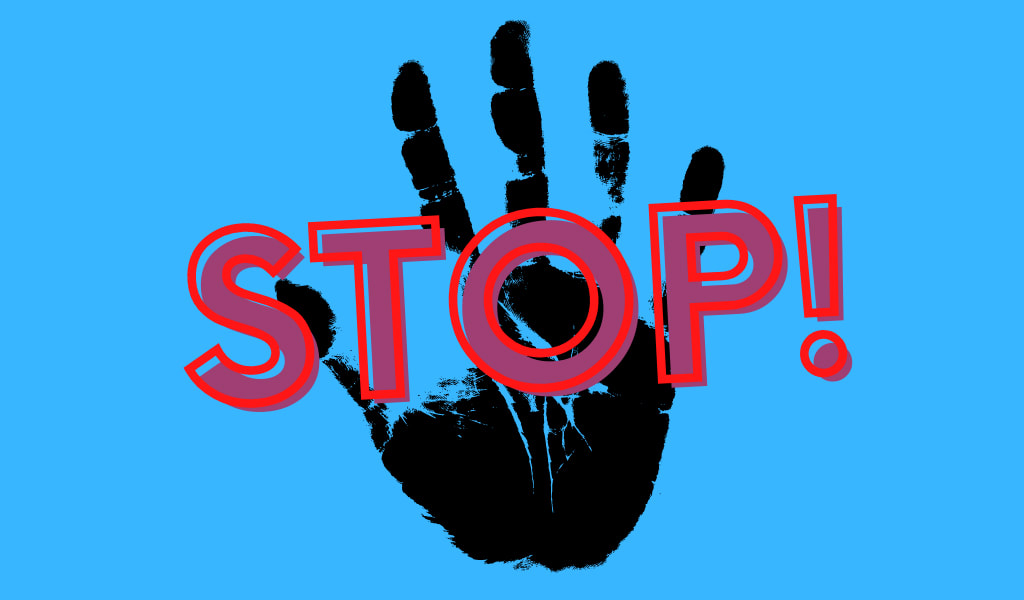
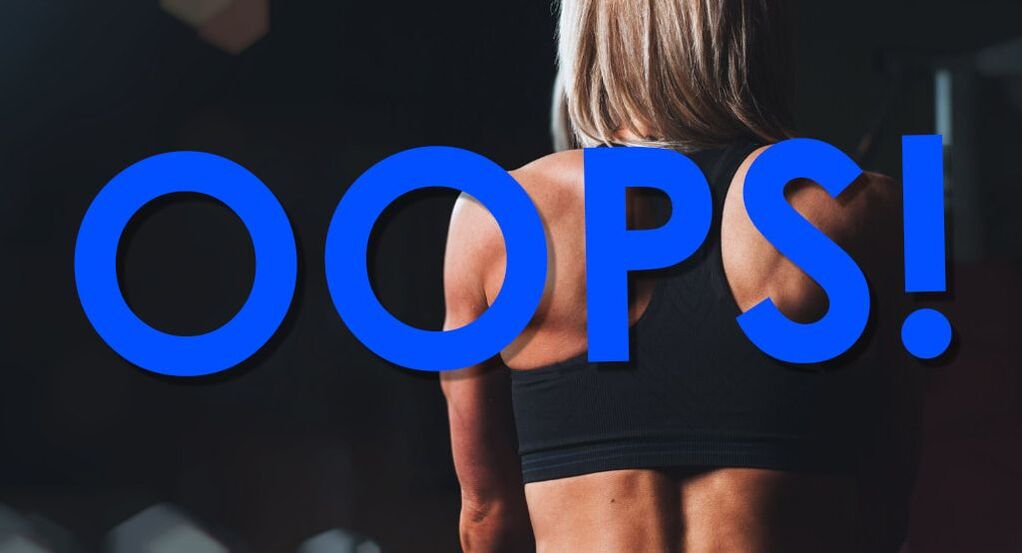
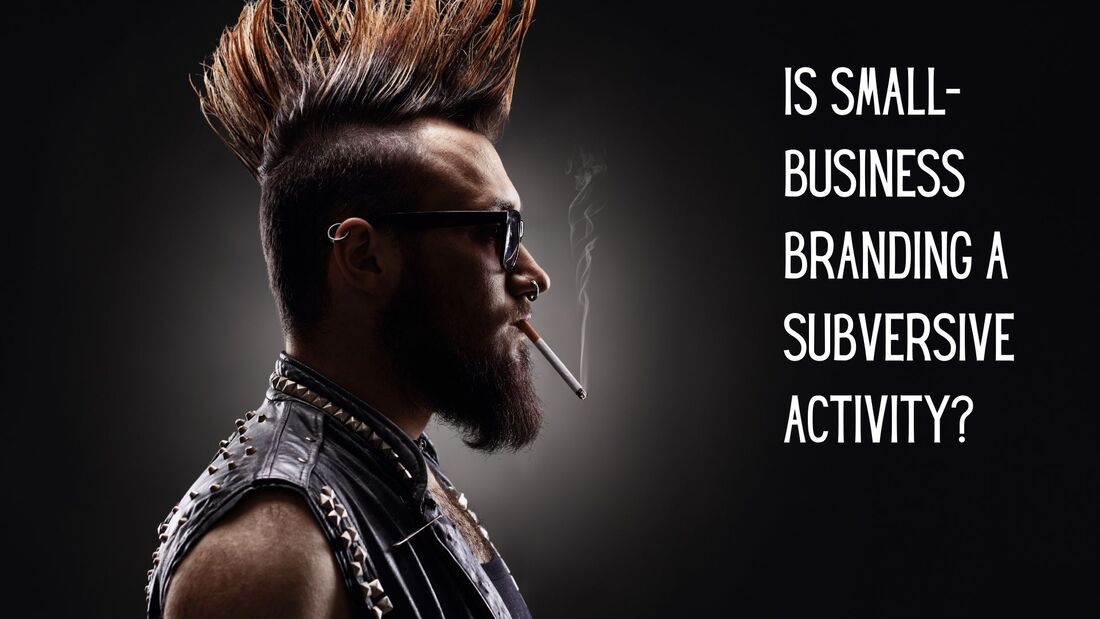
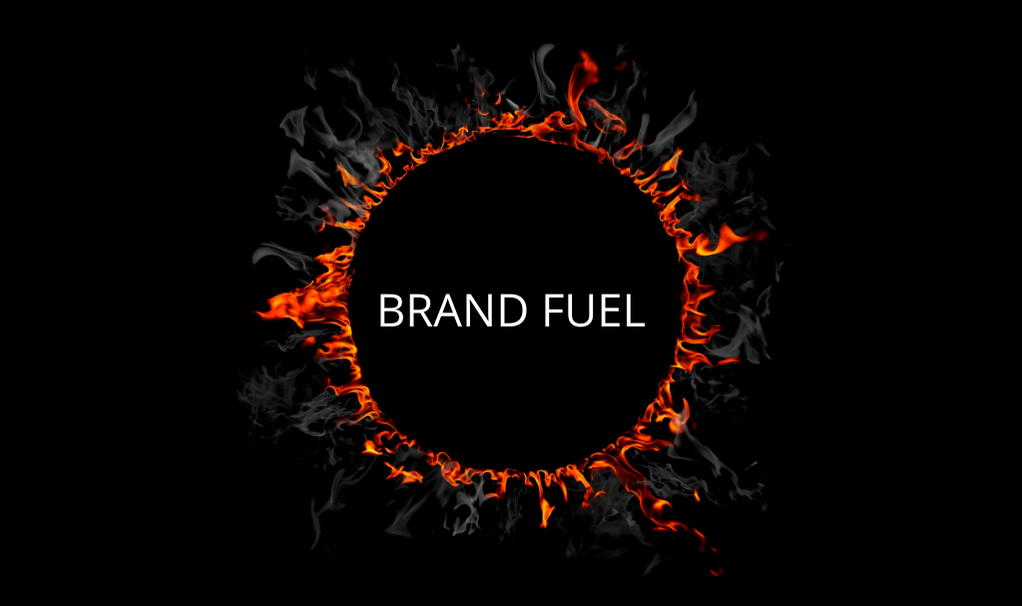
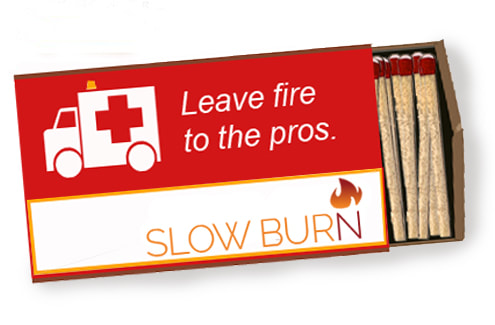
 RSS Feed
RSS Feed

